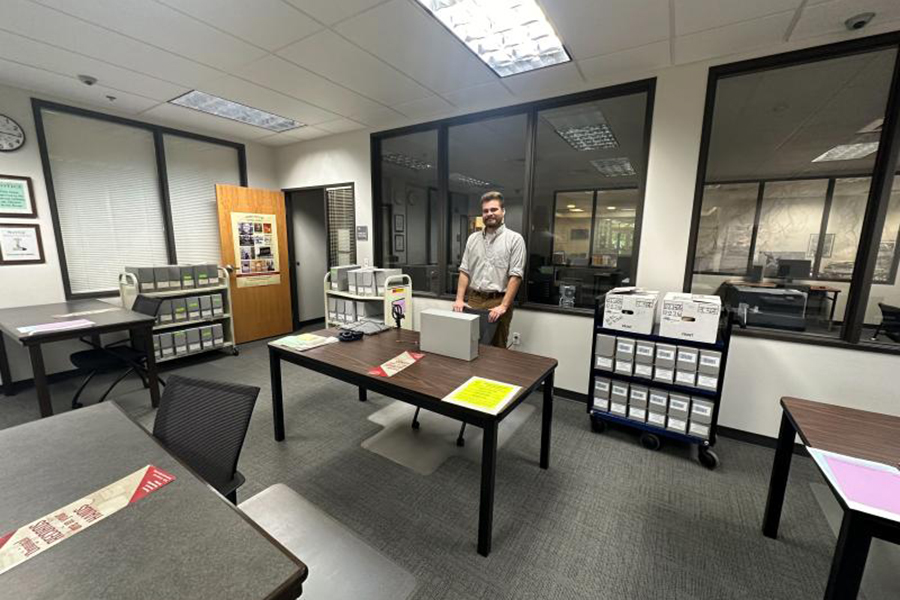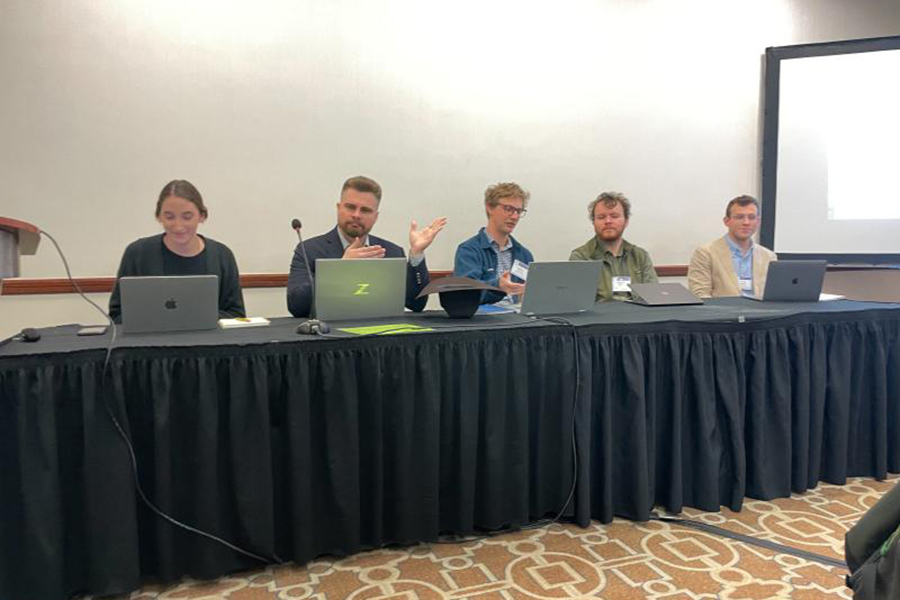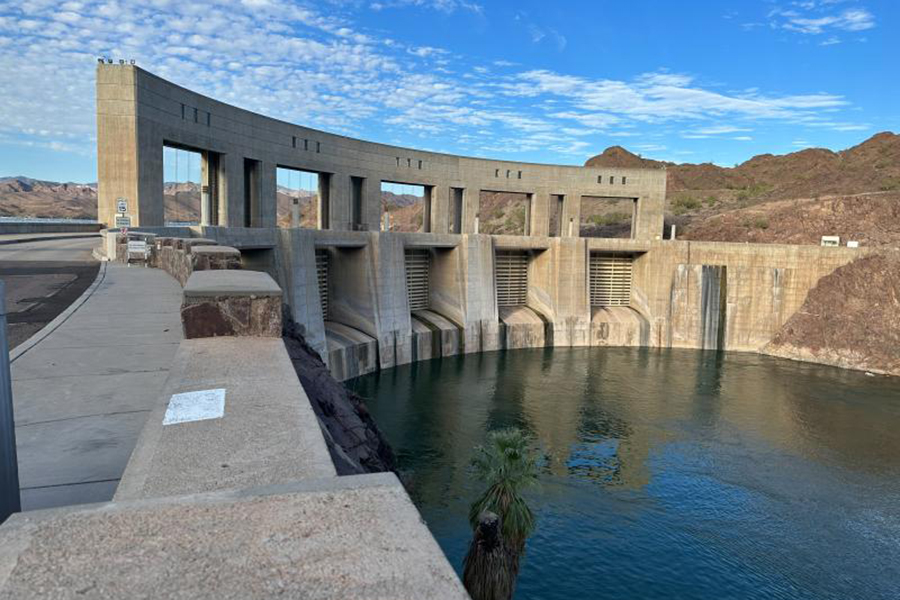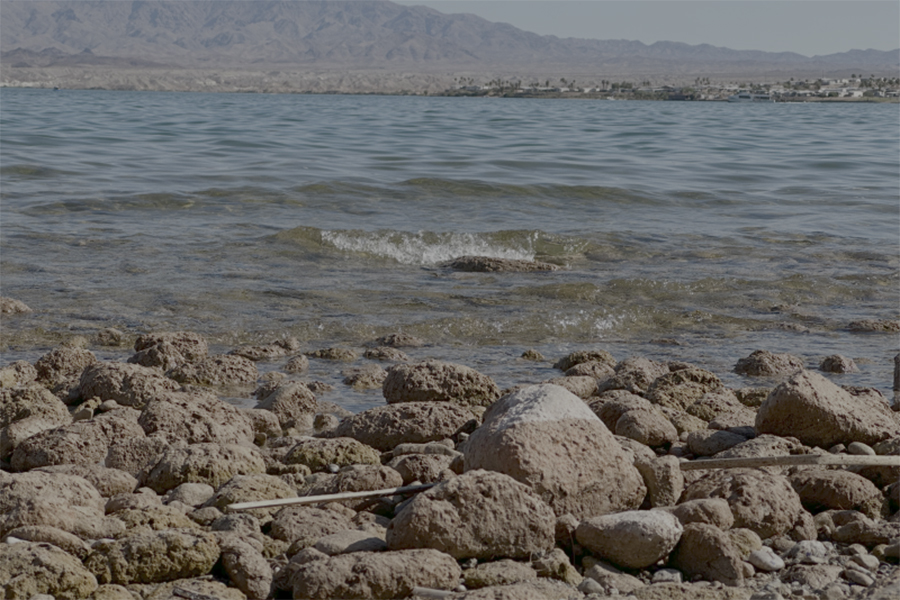Natural Knowledge
History doctoral student Dean Michel explores Indigenous landscape histories, education, and sacredness to inform modern land-management practices

Most people use running water that flows from the taps inside homes and businesses daily, but few wonder where this water comes from or how its journey from source to sink affects the surrounding land.
In some cases, man-made dams built to support public water infrastructure have flooded Indigenous landscapes, destroying ceremonial and burial sites and erasing tribal history. Florida State University history doctoral student Dean Michel considers it his mission to preserve these important lands and places by advising policymakers on the heritage and practices of Indigenous communities so they make informed decisions about the construction and care of man-made and natural waterways.
“It’s not just landscape — it’s kin,” said Michel, an enrolled member of the Chemehuevi Indian Tribe whose research focuses on Indigenous studies and Indigenous knowledge related to climate, land and water management. “There’s a trauma in watching your family’s graves being destroyed and washed away due to a man-made dam now running through the area.”
A first-generation college student, Michel earned his bachelor’s degree in history from Chadron State College in Chadron, Nebraska, in 2018 and a master’s in history from FSU in 2022. His doctoral research bridges Indigenous and governmental perspectives on land management and our relationship with land — one of his main priorities is helping people gain more respect and a better understanding of land, along with clearer intentions for how land should be managed.
“There’s a saying where I’m from: the rocks and the rivers — they know us,” said Michel, who plans to graduate in May 2026. “When they’re destroyed by new dams and waterways, we’re not just watching our homestead disappear but also our relationship with a place that’s existed for longer than we know.”
Earlier this year, Michel was awarded a Mellon Fellowship in Democracy and Landscape Studies through the Dumbarton Oaks Fellowship supported by Harvard University. The fellowship, which includes a nearly $20,000 stipend, funds research into landscape histories and neglected or forgotten narratives.
Michel will spend the nine-month fellowship in Washington, D.C. researching traditional values of landscape, including land-based education, identity and sacredness, and amplifying the equal importance of Indigenous stories and government records of places through his dissertation, “A Watery Grave in the Desert: Termination, Survivance, and the Chemehuevi Indian Tribe.”
“There’s a saying where I’m from: the rocks and the rivers — they know us. When they’re destroyed by new dams and waterways, we’re not just watching our homestead disappear but also our relationship with a place that’s existed for longer than we know.”
— Dean Michel
“My dissertation explores concepts of land management through the analysis of U.S. environmental policies,” Michel said. “For example, the Acquisition of Indian Land for Parker Dam and Reservoir Project Act passed in 1940, allowing the U.S. federal government to acquire land owned by Native Americans to construct Parker Dam. This act destroyed the reservation and is a prime example of the disposition toward benefiting massive urban centers as opposed to the land that supports them. We’re not considering how these infrastructures are affecting and deteriorating our environment, which erases history. By integrating Indigenous narratives, sustainable waterway ideas, and government regulations, I want to mitigate these problems.”
In 2024, Michel earned the Native American and Indigenous Studies Research, Travel, and Creative Works Grant from FSU’s Native American and Indigenous Studies Center, which allowed him to travel and attend his tribe’s annual meeting in Havasu Lake, California, to gain more perspectives by interviewing elders and participating in annual celebrations. He also earned the Department of History’s 2025 Martin-Vegue Fellowship to support the completion of his dissertation.
“Dean’s research is revealing the resilience of the Chemehuevi people and Native Americans overall — Native American history is often thought of as a story of decline and gradual disappearance, and he’s pushing back against this,” said Andrew Frank, NAIS director, Allen Morris Professor of History and Michel’s doctoral adviser. “I’m most encouraged by his increased willingness to be himself in academia. He’s not hesitant to let his voice be heard by his peers and the profession.”
At FSU, Michel also teaches students about Native American history through a geographical lens, relating curriculum to students’ hometowns to give them a closer understanding of Indigenous studies.
“I teach who the tribes are, where they are now, and what issues they currently face to show that the past is not divorced from the present,” Michel said. “I love teaching because a lot of students are grappling with these issues for the first time. Watching them learn the implications behind Indigenous history is enlightening. While I know the elders will teach Indian history to kids on the reservation, who will teach it outside of our tribe? I plan to become a university professor after graduation and teach people that we’re not just talking about infrastructures affecting Indian territories — this is about people’s homelands being erased.”
Bella Bozied is an FSU alumna who earned a bachelor’s degree in information, communication and technology with a dual major in editing, writing and media in 2024. She is currently pursuing a master’s degree in integrated marketing management communication with a certification in project management and is set to graduate in May 2026.





